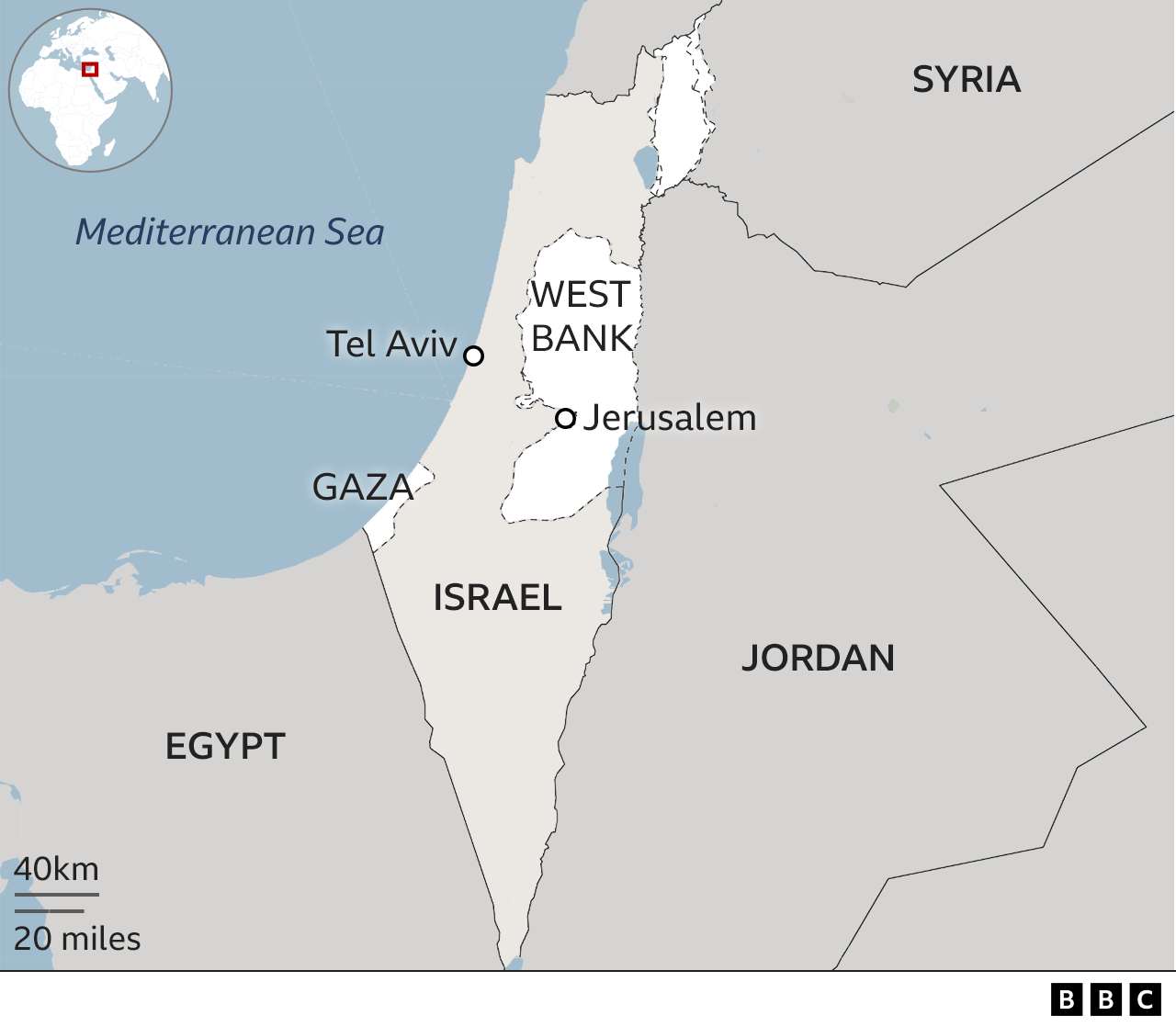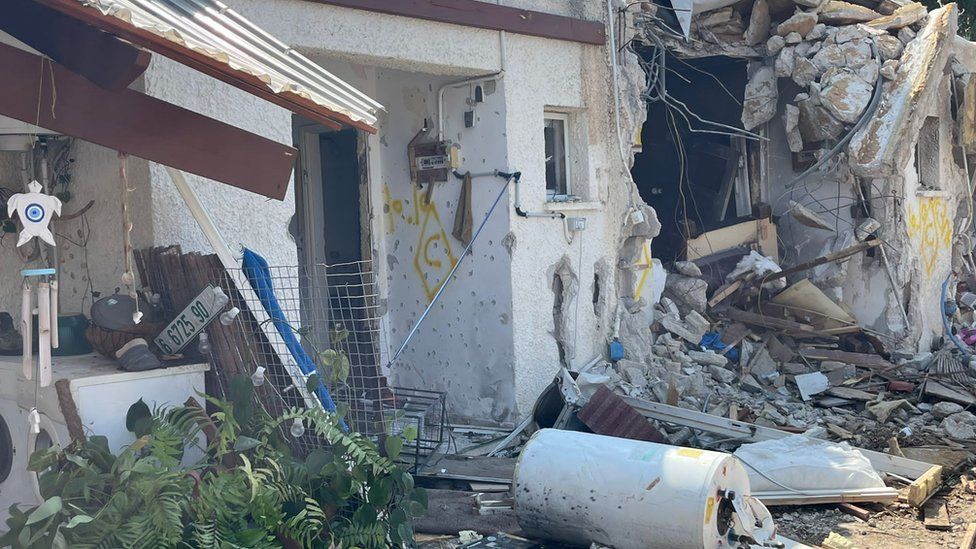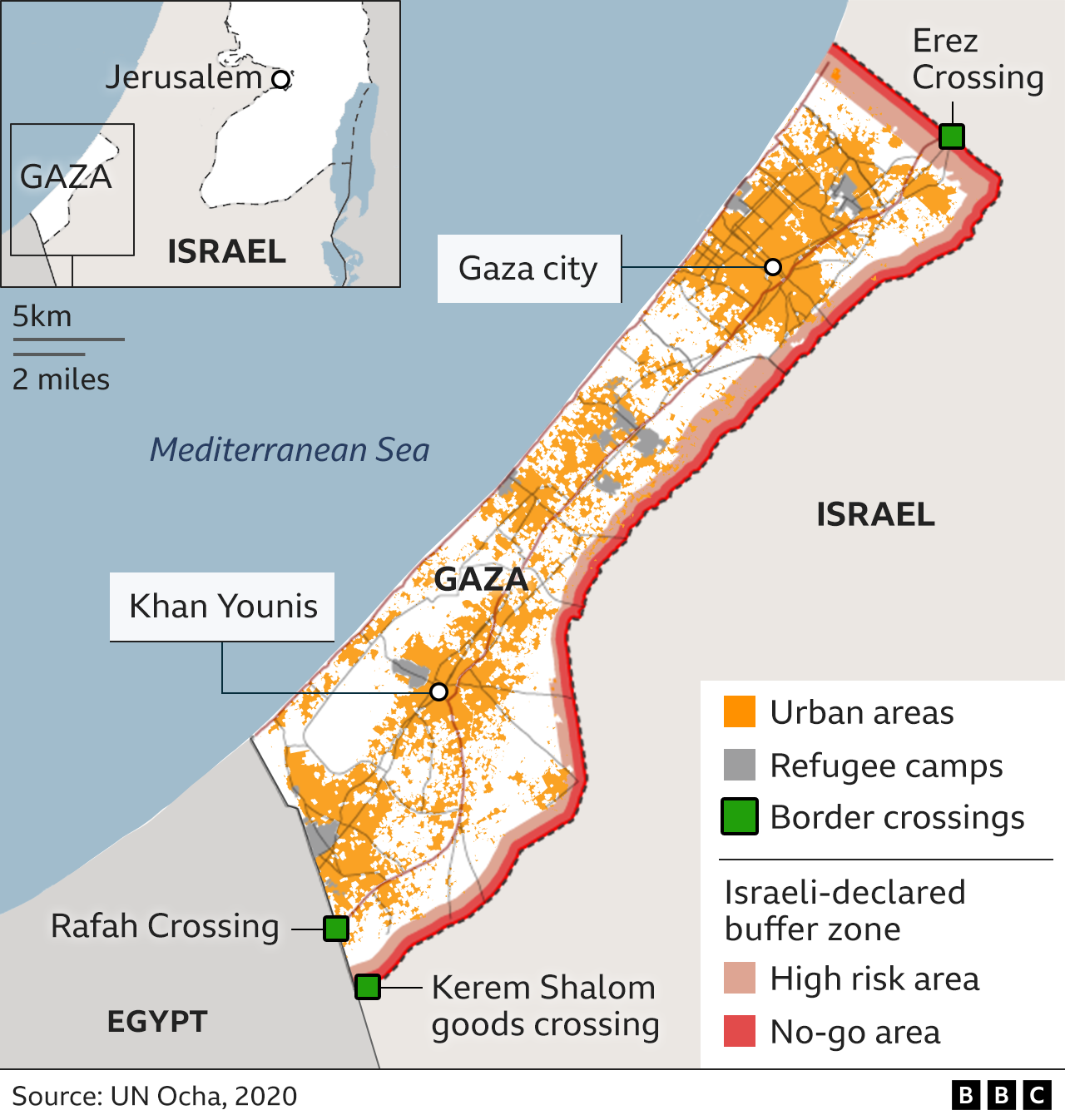23_11
Factors That Will Shape the Israel-Hamas War
The brewing conflict in Gaza could turn into a full-blown regional crisis depending on how Israel crafts its military response and whether other militant groups in the region get involved.
U.S. Secretary of State Antony Blinken visited Israel on Thursday to pledge unwavering U.S. support for its ally, while the humanitarian situation in Gaza goes from bad to worse amid numerous Israeli strikes. U.S. Defense Secretary Lloyd Austin is traveling to Israel on Friday.
SitRep has spoken to more than a dozen officials, regional experts, and U.S. lawmakers about the brewing conflict and what happens if it escalates beyond Gaza. Boiling all their insights down into just one newsletter is incredibly difficult, particularly given how rapidly the situation is evolving, but broadly speaking three factors will shape the conflict.
First, what would a ground invasion of Gaza look like? As Israeli strikes pound Palestinian neighborhoods in Gaza, the Israeli military is readying plans to launch a full-scale ground invasion—but Israel’s political leaders haven’t given the green light on that plan yet. Whether they do and how they do it will have massive military and humanitarian implications.
Gaza, the small coastal strip from which Hamas launched its deadly attacks on Israeli civilians and military bases over the weekend, is considered one of the most densely packed urban areas in the world.
Urban warfare is grim, and no matter which side wins, civilians always lose.
Adm. Rob Bauer, the Dutch commander who chairs NATO’s Military Committee, visited one of the Israeli bases bordering Gaza just a week before it was attacked. “I still believe the Israeli forces are extremely advanced,” Bauer told SitRep in an interview at the alliance’s headquarters in Brussels. “I still believe they have great capabilities. They have to, because they have been in a state of war for so long.”
Four previous rounds of conflict between Israel and Hamas between 2008 and 2021 ended indecisively, with Hamas still retaining control of Gaza, but Israeli officials vow this time will be different.
A full-scale Israeli invasion could decapitate Hamas in a best-case scenario for Israel, but it could also quickly bog down into a military quagmire. Some U.S. and European officials who spoke to SitRep voiced fears of parallels to Israel’s 1982 invasion of Lebanon: Israel intended to swiftly defeat the PLO, but the war morphed into a drawn-out mini-Vietnam.
Second, will other actors get involved? The biggest fear for Israeli and U.S. officials is Hezbollah going all-in on joining the fight. The Lebanon-based militant group, backed by Iran and Syria, is considered one of the most heavily armed nonstate actors in the world, and its arsenal of weapons and missiles vastly overshadows Hamas’s military capabilities. By some estimates, it has expanded its missile arsenal to 130,000.
The Biden administration is still determining how many fingerprints Iran put on Hamas’s massive attack on southern Israel.
“The intelligence community should be the ones to determine how much involvement Iran had in this attack, as that is what policy should be based on. Not selected leaks,” said Mick Mulroy, a former U.S. deputy assistant secretary of defense for the Middle East and a retired CIA officer.
If Hezbollah fully dives into the fight, it will turn the conflict into a two-front war for Israel and draw in, at least in a more meaningful way, Iran and Syria to the conflict—though Iran always prefers to operate through proxies. Israel has already deployed tens of thousands of troops to the border with Lebanon to head off any plans by Hezbollah, and the situation remains on a knife-edge. Austin, the U.S. defense chief, said the United States had “not seen any masses of forces on the border” between Lebanon and Israel, as of Thursday afternoon Europe time.
“For years, I’ve believed that Israel has effectively deterred Hezbollah from a major escalation, but things are more dangerous now,” Daniel Byman, a Middle East expert at the Center for Strategic and International Studies, told SitRep. Byman indicated that there’s a risk for even small skirmishes to quickly spiral. “As regional passions rise, it is harder to be removed from regional events. In addition, military ‘signaling’ on both sides can easily be misunderstood or get out of control.”
Third, what’s Uncle Sam’s plan? The Biden administration has already deployed a U.S. aircraft carrier strike group to the region, in large part as a signal of support to Israel and also to deter Hezbollah or other groups from jumping into the fight.
The USS Gerald R. Ford and its entourage—five guided missile ships, a cruiser, and four destroyers—have a lot of firepower, including systems that could help defend Israel against missile attacks from Hezbollah. (Retired U.S. Navy Adm. James Stavridis has a good rundown in Bloomberg of what the carrier strike group’s deployment means, if you’re interested in learning more.)
A senior U.S. defense official, speaking to reporters in Brussels on condition of anonymity, said the Ford’s move into the Eastern Mediterranean would help prevent the conflict from expanding. The official mentioned the possibility of a second U.S. carrier entering the region in the future but didn’t give more details.
“You may be strong enough on your own to defend yourself, but as long as America exists, you will never, ever have to,” Blinken said in a joint press conference with Israeli Prime Minister Benjamin Netanyahu on Thursday.
Will the United States become militarily involved in the conflict? Top National Security Council official Jon Finer told MSNBC on Thursday: “We are not contemplating U.S. boots on the ground.” But planes in the air and ships in the sea aren’t boots on the ground, and it’s not yet clear what authorities the carrier group and the deployment of fighter jets would have—if any—to provide backup to Israel if it ends up on its heels.
Still, it is a sign to Iran and groups such as Hezbollah to stay out. “I don’t necessarily think these are resources that would be flying in support of the Israelis,” said Joseph Votel, a retired U.S. Army general who led U.S. Central Command until 2019. “Iran has to appreciate that there is a cost to be paid for stepping more into this.”
There’s another factor on the U.S. side: money.
President Joe Biden and Congress, or at least most of Congress, are hankering to send Israel more military aid—to the tune of $2 billion—but the current Republican political fiasco in the House of Representatives amid the battle over a new speaker makes that difficult.
Biden has the ability to send Israel limited military aid through presidential drawdown authority—basically allowing the rapid shipment of existing U.S. stockpiles to Israel—but Congress needs to write the bills (and the checks) for future military and security assistance packages. Can Congress do that without an elected House speaker? In short, maybe not, but it’s complicated and legally unprecedented territory.
Let’s Get Personnel
Former Republican Rep. Will Hurd has quit the Republican presidential primary race and endorsed Nikki Haley.
Former Secretary of State Mike Pompeo joins Liberty University as the conservative Christian school’s new distinguished chair of the Helms School of Government.
Israel-Hamas war live: Israel raids Gaza’s al-Shifa Hospital
Olamide Baddo
23_10
Ejikeme Joy Mmesoma Confesses to Manipulating JAMB Result, Reveals How She Did It in Quick Steps
Israel War: The US has Israel’s back.’ How far could the war spread?
The Take: ‘The US has Israel’s back.’ How far could the war spread?
The United States is sending military support to Israel – and regional neighbours respond.
Unilorin graduates 450 First Class Students
Israel War: What is Hamas?
What is Hamas?
Hamas is a Palestinian militant group which rules the Gaza Strip. Its name is an acronym for Harakat al-Muqawama al-Islamiya, or "Islamic Resistance Movement", and means "zeal" in Arabic.
The group is sworn to Israel's destruction and wants to replace it with an Islamic state.
Hamas has fought several wars with Israel since it took power in Gaza in 2007.
It has fired - or allowed other militant groups to fire - thousands of rockets at Israel, and carried out other deadly attacks.
Israel has repeatedly attacked Hamas with air strikes in response, and sent troops into Gaza during two of the wars. Together with Egypt, it has blockaded the Gaza Strip since 2007 for what it describes as security reasons.
Hamas - or in some cases its military wing, the Izzedine al-Qassam Brigades - has been designated a terrorist group by Israel, the United States, the European Union and the UK, as well as other powers.
Iran backs the group, providing it with funding, weapons and training.
What is the Gaza Strip and why is it important?
The Gaza Strip is a 41km (25-mile) long and 10km-wide territory located between Israel, Egypt and the Mediterranean Sea.
Originally occupied by Egypt, Gaza was captured by Israel during the 1967 Middle East war along with the West Bank and East Jerusalem. Israel withdrew its troops and around 7,000 settlers from the area in 2005.
It is currently home to about 2.3 million people, and has one of the densest populations in the world.

Israel controls the air space over Gaza and its shoreline, and strictly controls the movement of people and goods through its border crossings.
Similarly, Egypt controls who passes in and out through its border with Gaza.
About 80% of the population of Gaza depends on international aid, according to the UN, and about one million people rely on daily food aid.
After Hamas's unprecedented attack, Israel announced a "siege" of Gaza - cutting its supplies of electricity, fuel, food, goods and water.
Mains electricity has gone out in Gaza, after its one power station ran out of fuel. Without electricity, Gaza's water and sewage systems are also expected to shut down.
People in Gaza will have to rely on generators for electricity - if they have the fuel to run them.
Watch: Hiding at home, blinded and choked by dust - a video diary from Gaza
What is Palestine?
The West Bank and Gaza, which are known as the Palestinian territories, as well as East Jerusalem and Israel all formed part of a land known as Palestine from Roman times until the mid-20th Century.
These were also the lands of Jewish kingdoms in the Bible, and are seen by many Jews as their ancient homeland.
Israel was declared a state in 1948, though the land is still referred to as Palestine by those who do not recognise Israel's right to exist.
Palestinians also use the name Palestine as an umbrella term for the West Bank, Gaza and East Jerusalem.
Why did Hamas launch its latest attack?
Although the attack by the militants on 7 October was unexpected, it came at a time of soaring Israeli-Palestinian tensions.
This year has been the deadliest on record for Palestinians who live in the Israeli-occupied West Bank, which could have motivated Hamas to strike Israel with a spectacular attack.
Hamas might also have been seeking to score a significant propaganda victory against Israel to boost its popularity among ordinary Palestinians.
The fact that it has taken so many Israeli hostages captive is thought to be designed to pressure Israel to free some of the estimated 4,500 Palestinians held in Israeli prisons - a highly emotive issue for all Palestinians.
There is also speculation that the attack was orchestrated by Iran - Israel's arch-foe - though Iran's Supreme Leader has denied his country's involvement.
Iran and Hamas also staunchly oppose the growing prospect of an historic peace deal between Israel and Saudi Arabia.
This might be thwarted if Israel's military response to the Hamas attacks provokes widespread anger in the Arab world.
- How Hamas' shock attack unfolded
- Who are the hostages taken by Hamas from Israel?
How does this compare to previous Hamas attacks?
The BBC's international editor Jeremy Bowen says this is the most ambitious operation Hamas has ever launched from Gaza, and the most serious cross-border attack Israel has faced in more than a generation.
Militants breached the wire that separates Gaza from Israel in multiple places.
Details of a massacre in one Israeli community, Kibbutz Kfar Aza, have emerged - with an Israeli general speaking of babies killed. Israeli soldiers told Jeremy Bowen that some of the dead had been beheaded.
 IMAGE SOURCE,OREN ROSENFELD
IMAGE SOURCE,OREN ROSENFELDSince the latest attack began, the death toll in Israel has reached 1,200 - while more than 1,000 people have been killed by Israeli air strikes on Gaza.
Why wasn't the attack foreseen by Israeli intelligence?
Given the combined resources of the Shin Bet, Israeli domestic security services, its external spy agency Mossad, and all the assets of the Israel Defense Forces, the BBC's security correspondent Frank Gardner says it is astounding that nobody saw this coming or failed to act on it if they did have a warning.
Israel has arguably the most extensive and well-funded intelligence services in the Middle East, with informants and agents inside Palestinian militant groups, as well as in Lebanon, Syria and elsewhere.

The border fence between Gaza and Israel has cameras, ground-motion sensors and regular army patrols.
The barbed-wire topped fence is supposed to have been a "smart barrier" to prevent exactly the sort of infiltration that has taken place in this attack.
But Hamas militants simply bulldozed their way through it, cut holes in the wire or entered Israel from the sea and by paraglider.
How is the US involved?
America is Israel's closest ally, and successive administrations have declared the US' "iron-clad" commitment to Israel's security.
In the wake of the Hamas attack, the US announced it was moving an aircraft carrier, ships and jets to the eastern Mediterranean, and that it would also give Israel additional equipment and ammunition.
As well as a show of support towards Israel, the move could be a warning to the powerful Lebanese militant group, Hezbollah - an enemy of Israel and supporter of Hamas - not to attack Israel.
At least 14 US citizens - along with victims from about 16 countries, excluding Israel - have been killed in the Hamas attack. A number of US citizens are also among the dozens of people being held hostage by Hamas in Gaza.
What happened in 1973, and why are people comparing it to Hamas' latest attack?
Some are comparing the Hamas attack with what Israelis refer to as the Yom Kippur War of 1973. Almost exactly 50 years ago, Israel was caught in a surprise attack by Egypt and Syria on the Jewish holy day of Yom Kippur.
The Arab forces made significant advances before Israel's were able to repel them.
In the war, 2,656 Israeli soldiers were killed, and thousands more were wounded. On the Arab side, some 18,000 were killed and tens of thousands were wounded.
The fact that Israel was caught off-guard and suffered so many casualties made a deep impact on the Israeli psyche, and its subsequent focus on military preparedness convinced Israelis that such an event could never happen again.
How might Israel and the Arab world respond?
Hamas military commander Mohammed Deif has called on Palestinians and other Arabs to join the militants' operation to "sweep away the [Israeli] occupation".
It is not clear whether Palestinians in the occupied West Bank and East Jerusalem or elsewhere in the region will heed his call, according to the BBC's Jerusalem correspondent Yolande Knell.
Israel undoubtedly sees the potential for a war that could open up on multiple fronts.
One worst case scenario would see the involvement of Lebanon's Hezbollah movement.
Since the attack, the Iran-backed militant group has launched a number of missiles and shells at northern Israel. Israeli forces have responded by attacking Hezbollah positions and other infrastructure.
The Israeli military has ordered a massive reinforcement of troops and is expected to launch a ground offensive on the Gaza Strip soon.
It says 300,000 personnel including recently-mobilised reservists are near the Gaza border "ready to execute the mission we have been given".






.jpg)






